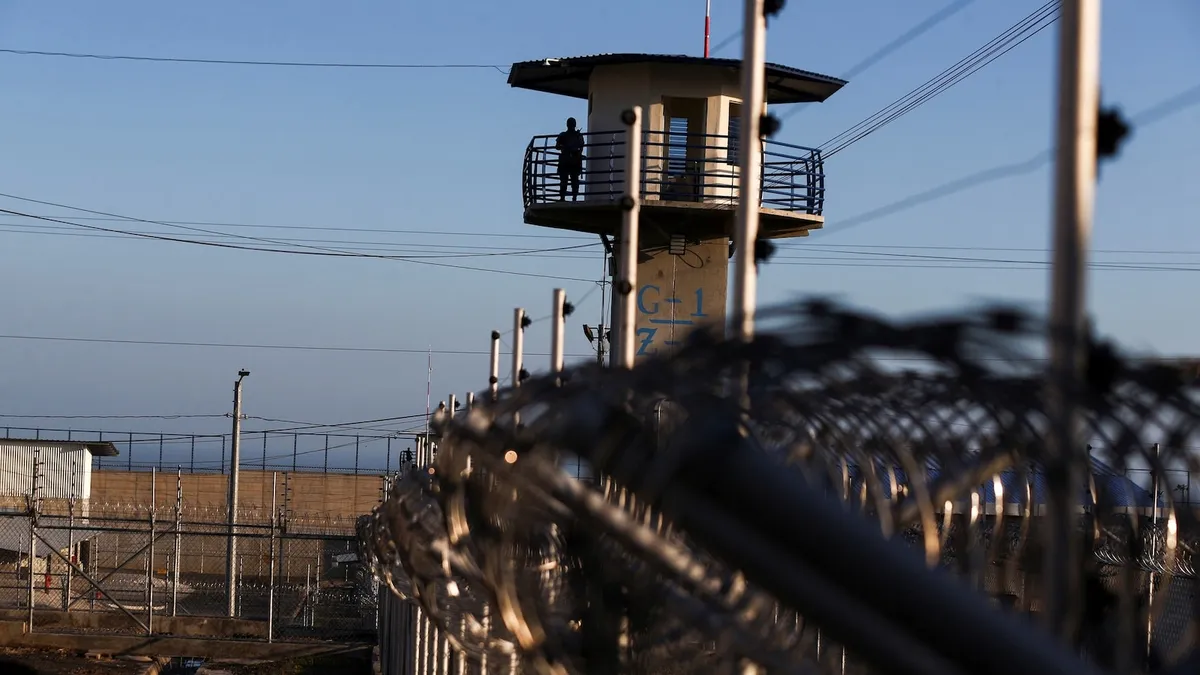
After a temporary block on his deportation was granted by a Supreme Court order, 19-year-old Venezuelan migrant Alessandro Paredes shared his experience from the Bluebonnet Detention Center in Anson, Texas, with ABC News. Paredes described the attempted deportation on Friday as illegal, stating, “This is not being done by law, this is totally illegal and it's out of the blue.” He recounted how he and other detainees were abruptly taken from their quarters early in the morning and forced into a van.
“They tried to put us into a plane,” Paredes said, detailing how the van turned around before reaching the airport, returning them back to the detention center. His experience highlights the uncertainty and fear faced by many migrants detained in the U.S.
In response to the Supreme Court's order that halted deportations from the Northern District, White House press secretary Karoline Leavitt expressed strong criticism. In her statement to ABC News, she asserted the administration's confidence in the legality of its actions. “President Trump promised the American people to use all lawful measures to remove the threat of terrorist illegal aliens, like members of TdA, from the United States,” Leavitt stated, defending the administration's position against what she termed “meritless litigation” brought by activists.
Paredes revealed that he and other detainees were coerced into signing documents claiming they were members of the gang Tren de Aragua (TdA). According to a document submitted by the ACLU, titled Notice and Warrant of Apprehension and Removal under the Alien Enemies Act, Paredes was labeled as a gang member. “We have been forced to sign a paper, right here, basically saying that we are part of a gang,” he explained. This raises significant concerns about the treatment of detainees and the validity of such accusations.
Stephen Miller, a former adviser to Trump on homeland security, highlighted a list allegedly from a DHS official that included Paredes’ name and photo, claiming he was a confirmed TdA member facing criminal charges. The list’s implications have stirred controversy and prompted discussions about the administration's deportation strategies.
A review of court records indicates that Paredes has one ongoing charge in South Carolina related to firearms. He turned himself in for this charge earlier this year and is scheduled to appear in court again in August. His mother, speaking through an attorney, vehemently denied the allegations against her son. “He was a good student, a talented football player, and a loving son. He is a devout Catholic,” she stated, advocating for his return to Venezuela rather than deportation to El Salvador, a country she claims he has never known.
Earlier this month, the Supreme Court lifted an injunction that had previously barred deportations under the Alien Enemies Act, ruling that individuals facing deportation must be afforded due process. The ACLU has raised concerns that many Venezuelan migrants, including those in the Bluebonnet Detention Center, are at risk of deportation without adequate notice or time to contest their removals. Paredes articulated his fears about being sent to El Salvador, stating, “We are very scared that everybody here will get deported to El Salvador.”
He stressed that many detainees have no criminal records, further emphasizing their vulnerability. “There are underage people, and even disabled individuals here,” he added. Paredes also mentioned the lack of communication from detention center officials, saying, “They just tell us that they don't know anything,” which amplifies the anxiety among detainees seeking justice and clarity regarding their situations.
In his closing remarks, Paredes emphasized the humanity of himself and his fellow detainees, stating, “We just want justice, we are humans, we have human rights. We just want to go back to our country.” His story underscores the complex legal and ethical issues surrounding immigration and deportation policies in the United States.